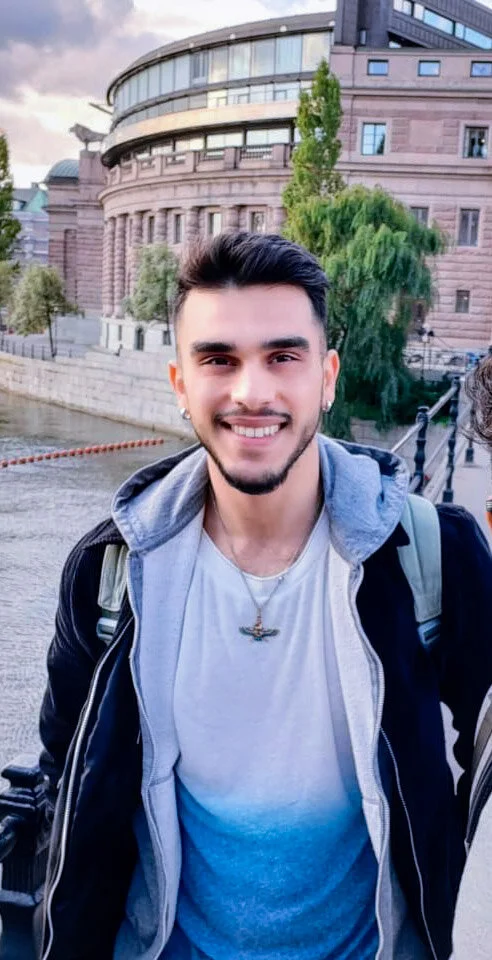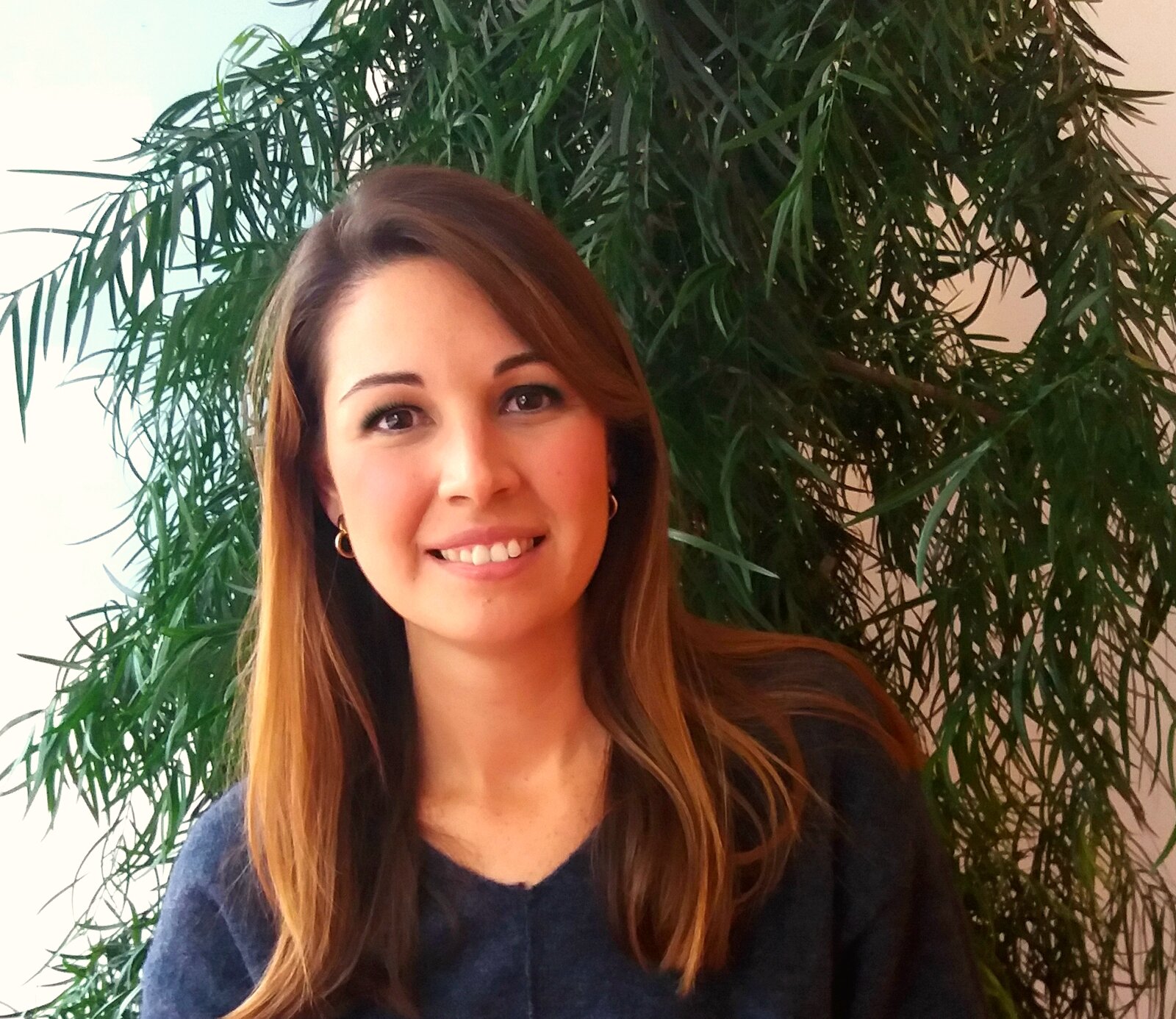Dr. Rachel Foster
My research interests and foci are on the ecology and evolution of N2 fixing (diazotroph) cyanobacteria that live freely or in symbiosis with single celled eukaryotes. Using a suite of single celled molecular genetic, microscopy, and stable isotope probing approaches we try to understand better the activity, diversity and interactions of diazotrophs with each other (e.g. in symbioses) and their environment.
Key words: symbiosis, N2 fixer, nanoSIMS, evolution, microscopy
Sepéhr bardi, phd student
My thesis revolves around the nitrogen fixing marine filamentous cyanobacteria which live in symbiosis with various phytoplankton, e.g. diatoms. We are developing methods to investigate intercellular molecular exchange and how they are regulated by environmental factors, in these systems. We utilise immunocytochemistry, various microscopy techniques (confocal microscopy and SIMS) and bioinformatic tools. My main interests are how biological systems play a role in regulating biogeochemical properties and cycles in the oceans, the underlying ecophysiological mechanisms by which these systems are maintained and deep sea ecosystems.
Keywords
Intercellular communication, Immunocytochemistry, FRAP, Molecular biology, Filamentous cyanobacteria, Heterocysts, Symbiosis, Bioinformatics
BENJAMIN NORGREN, msc student
My Msc thesis involves identifying the role of other bacteria in Diatom-Richelia symbioses by developing single cell gene sequencing and visualising techniques
Keywords: novel pigment operon, aquaculture, antibiotics, antibiotic resistance
Elina Viinamäki (Research Engineer)
My research interests is to combine traditional ecological methods with molecular methods to get an even more holistic ecological description of the world we are living in.
Since working with eDNA I'm interested in the development of molecular methods to use in novel ways and less invasive to minimize antropogenic impact on flora and fauna.
In Foster Lab I'm working with different aspects. Maintaining different types of cultures including related work around it.
Molecular lab work of different kinds as well as collecting samples and preparing them for down stream analysis.
And as lab manager it's my job to make sure everything needed is in stock and available.
Kristina McCormack
My master’s thesis research interests fall within the scope of unique microscopic partnerships. More specifically, looking at symbiotic single-celled eukaryotic microalgae (diatoms) and nitrogen-fixing heterocystous cyanobacteria. My aim is to look into how the two partners communicate. To do so, I’m hoping to apply mass spectrometry imaging to study in situ species interactions. The goal is to characterize and visualize the chemical communications between the diatom and cyanobacterial partners. Keywords: symbioses, marine microbiology, nitrogen-fixation, cyanobacteria
Megan Sørensen (Post-doc)
I am interested in the evolution of endosymbiotic relationships, particularly those that are photosynthetic and therefore enable the transition to mixotrophy. My current research is focused on a marine protist, Meringosphaera, and the identification of its endosymbiont. I intend to use a combination of methods, including metabolomics, sequencing, and microscopy, to study the degree of integration within this endosymbiosis.
Keywords: Endosymbiosis, Evolution, Marine Microbiology
Linnea Ström (PhD student)
Starting my PhD education in August 2020 my work will focus on the symbiosis between diatoms and cyanobacteria i.e diatoms diazotroph associations (DDAs). The question that will be approached is how the partners compete or cooperate for resources. Of main interest is the role of iron in the symbiosis and how both the host and symbiont acquire iron. Methods that will be used includes genetic complementation, Raman spectroscopy, nanoSIMS and transcriptomics.
Keywords: diatoms diazotroph associations, Iron acquisition, transcriptomics
Alumni
MERCEDES NIEVES (POSTDOCTORAL RESEARCHER)
My current research interest is focused on marine planktonic symbiosis. I am interested in the identification of transport proteins and the exchange of metabolic substrates (N and C substrates) using genetic complementation methods. I am developing methods to visualize and measure the intercellular molecular exchange of fixed N and C in planktonic symbiosis by stable isotope assays coupled to nanometer scale secondary ion mass spectrometry (nanoSIMS) approach.Keywords: Molecular Biology, Cyanobacteria, Marine Biology, Symbiosis, Diatoms. Themes: 1, 3
MARCUS STENEGREN (PHD)
My work focuses on nitrogen fixing cyanobacteria, living in symbiosis with diatoms, which play vital roles in marine biogeochemical cycles. I'm mainly interested in how marine environments govern these inhabitants, and I use molecular methods, like quantitative Polymerase Chain Reaction (qPCR) and microarrays, to understand why they show certain patterns of distribution and activity in relation to environmental factors. Lastly, I use novel ecological models, like the piecewise Structural Equation Model, to try to disentangle relevant ecological questions and formulate new testable hypotheses.
Update:
Marcus Stenegren graduated his PhD 2020.
ANDREA CAPUTO (PHD)
My work focuses on genomic and morphological diversity of marine planktonic diatom-diazotroph associations. My passion for the microorganisms´ world started early in my academic career, and further developed through various microscopy techniques (SEM, TEM, LCSM, LMD, CARD-FISH), molecular analysis (PCR, RT-PCR, qPCR, WGA, cloning/sequencing), and evolutionary phylogenetic reconstructions (concatenated analyses, molecular clocks, ancestral state reconstruction). I´m also interested in the ecological distribution of the microbial community and the abiotic/biotic drivers of such diversity.
UPDATE:
Andrea received his PhD in 2019. He now works as a program officer at SIWI. https://www.siwi.org/latest/could-the-medicine-we-produce-be-making-us-sicker/
ANDREA GAMBA (Master’s degree recipient)
I am a master’s student working on a project on how the coral holobiont responds to climate induced stressors (increased temperature and nutrients) using proteomic based methods.
Key words: bleaching, corals, microbiology, chloroplasts, symbiosis, tandem mass spectotrometry
Update:
Andrea Gamba graduated his Msc and is starting a PhD at University of Victoria, NZ on coral symbioses.










